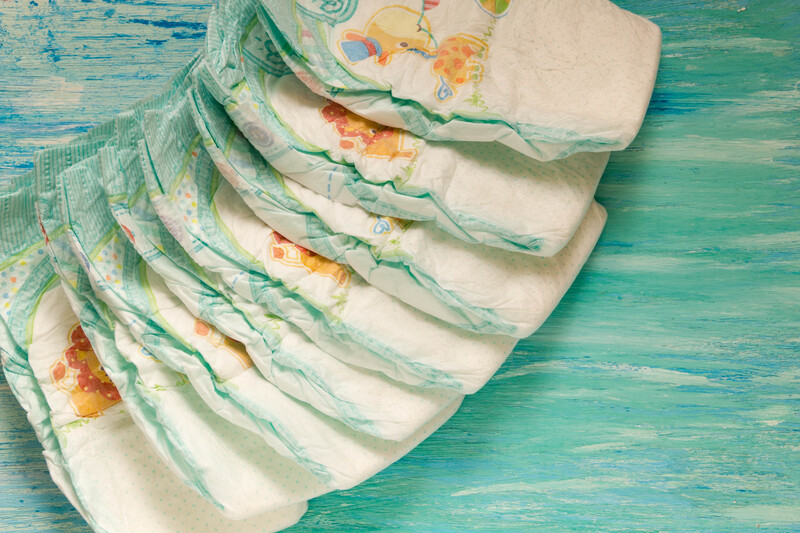Exploring Scrap Metal Centers for Recycling Old Pots and Pans
Is your kitchen overflowing with old cookware that you no longer use? Pots and pans often get replaced as they wear out or when you upgrade kitchen essentials. But instead of throwing them away, have you considered the benefits of recycling at scrap metal centers? In this comprehensive guide, we'll examine how you can responsibly dispose of unwanted pots and pans, the environmental advantages, and what to expect from your local recycling facility.

Why Recycle Old Pots and Pans?
Every year, millions of pieces of cookware end up in landfills. Most of these items are made from metals like aluminum, stainless steel, iron, or even copper--materials that are highly recyclable and valuable to scrap metal centers. By recycling your aged kitchenware, you contribute to a more sustainable environment, conserve resources, and may even earn a bit of cash in the process.
The Environmental Impact of Throwing Away Cookware
- Nonbiodegradable Waste: Metals can take hundreds of years to decompose in landfills.
- Resource Depletion: Recycling reduces the demand for mining raw materials, preserving natural resources.
- Energy Savings: Smelting recycled metals requires significantly less energy compared to producing new metals from ores.
- Toxic Pollution: Discarded non-stick or coated pans can leach chemicals into the soil and water supply.
What Types of Pots and Pans Can Be Recycled?
Before heading to your nearest scrap metal recycling facility, it's important to identify what's recyclable. Most scrap metal centers accept a broad range of cookware, but there are sometimes restrictions based on material or contamination. Generally, you can recycle:
- Aluminum pans (commonly lightweight and dull silver in color)
- Stainless steel pots (often magnetic and rust-resistant)
- Copper bottom pans (with visible copper or reddish hues)
- Cast iron skillets (heavy and usually matte black)
- Uncoated metal bakeware (muffin tins, cake pans, etc.)
Note: Non-stick pans with Teflon or ceramic coatings may require additional processing. Some centers may refuse items with excessive rust, plastic handles, or attached glass lids. Always check with your local center regarding their specific guidelines.
How to Prepare Your Old Cookware for Recycling
- Clean Thoroughly: Remove food residue and labels to avoid contamination during the recycling process.
- Detach Non-Metal Parts: Unscrew or break off plastic handles or glass lids. These materials must be disposed of separately.
- Check for Coatings: Inform the recycling facility about any non-stick or enameled surfaces so they can direct you appropriately.
- Sort by Metal Type: If possible, separate your items based on whether they are aluminum, steel, or copper to streamline processing and potentially increase your payout.
The Scrap Metal Center Experience: What to Expect
Visiting a scrap yard or recycling center may be a new experience for many. Here's a step-by-step guide to help you navigate the process of recycling old pots and pans at a scrap metal facility:
- Find a Local Scrap Center: Search online for "scrap metal centers near me" or utilize recycling directories to locate reputable facilities in your area.
- Contact the Center: Call ahead or visit their website to confirm what kitchen items they accept and whether you need to prepare them in any specific way.
- Weigh and Sort: Upon arrival, your items will be weighed. Some centers have different rates for various metals, so sorting is beneficial.
- Receive Payment: If your cookware is accepted, you'll either receive cash or a voucher based on the current market price for recyclable metals.
- Eco-Friendly Disposal: The center will process your old cookware, melting it down for reuse in manufacturing, saving energy and reducing waste.
Popular Materials in Cookware and Their Recyclability
Aluminum Pots and Pans
Aluminum is a favorite among manufacturers and chefs for its light weight and excellent heat conduction. Most local recycling centers accept aluminum cookware--provided it's free of non-metal attachments and coatings. Aluminum is 100% recyclable and can be reused indefinitely without losing its properties.
Stainless Steel Cookware
Very durable and commonly used in cookware, stainless steel pans are highly sought after at metal recycling centers. Their high nickel and chromium content make recycling efficient and lucrative.
Copper Bottom and Cast Iron Cookware
Copper is highly valuable, but not all centers will accept cookware with attached stainless or aluminum parts. Cast iron also has a high recycling value due to its weight and utility in industrial applications. If your pan contains a mix of metals, ask whether the center will separate and price accordingly.
Coated and Non-Stick Pans
Many centers now accept non-stick pans, but the coatings (Teflon, ceramic, enamel) must be removed before recycling the metal base. Not all facilities are equipped for this, so always check first.
Beyond the Scrap Yard: Other Ways to Recycle or Repurpose Old Cookware
While scrap metal centers are among the best places for responsible recycling, there are several alternative and creative options to ensure your old pots and pans don't go to waste:
- Donate Usable Cookware: If your pans are still functional, consider donating them to shelters, thrift stores, or community centers.
- Upcycling Projects: Craft enthusiasts can turn old skillets into wall clocks, planters, or unique decor pieces.
- Art Schools and Theaters: Schools and drama clubs may welcome old cookware for props or sculptures.
- Community Recycling Events: Some municipalities organize drop-off days for hard-to-recycle household items, including cookware.
The Importance of Choosing the Right Recycling Path
While dropping items at your nearest scrap metal center is convenient, it's important to consider:
- Facility Reputation: Choose a certified recycling center to ensure correct, environmentally sound practices.
- Material Separation: Properly prepared pans fetch better rates and are easier to recycle.
- Local Regulations: Some jurisdictions have special rules for items that may contain hazardous bonding agents or chemical coatings.
Tips for Maximizing the Value of Recycled Pots and Pans
- Gather a Bulk Amount: Accumulate a significant quantity of metal items before your trip. This increases your payout and reduces carbon footprint per item recycled.
- Sort Metals: Keep aluminum, copper, and steel items separate for faster processing and potential premium pricing.
- Avoid Contamination: Removing handles, screws, and non-metal parts ensures you aren't docked for mixed materials.
- Stay Updated on Metal Prices: Scrap values fluctuate according to market demand. Timing your recycling can bring better rewards.
- Check for Local Initiatives: Some areas offer higher payouts or incentives for recycling old kitchenware.
Frequently Asked Questions about Scrap Metal Recycling for Kitchenware
Can I recycle pots and pans with broken handles?
Absolutely! In fact, broken handles made of plastic or wood should be removed before bringing your pots and pans to a scrap recycling center to streamline the process.
Are non-stick pans accepted at all scrap metal facilities?
Not always. Non-stick pans often receive special handling due to coatings. Check with your local facility for their specific policies.
Do scrap yards pay for old pots and pans?
Most do, though the amount varies based on the type and weight of metal. Aluminum, copper, and stainless steel fetch the highest prices at scrap metal centers.
Can I leave pans with residual food stuck to them?
No. It is essential to clean all pots and pans before recycling. Contaminants hinder the recycling process and may result in your items being rejected.
What if my cookware is a mix of metals?
Some scrap yards will accept these items but may separate or downgrade their value. Whenever possible, disassemble items to component metals.

The Future of Kitchenware Recycling: Sustainability Trends
With environmental awareness on the rise, recycling old pots and pans will become increasingly important for both individuals and manufacturers. Expect more facilities to accept a wider variety of materials, and advances in technology to allow for improved processing of mixed or coated cookware. Consumer education and increased participation in local recycling programs are critical for building a greener economy.
Final Thoughts: Responsible Disposal for a Sustainable Kitchen
The next time you're cleaning out your kitchen drawers or upgrading your cookware set, remember that every old pot and pan is an opportunity to make a positive environmental impact. Scrap metal recycling centers offer a convenient, eco-friendly, and sometimes profitable solution for disposing of your aging kitchenware responsibly. Whether you choose to recycle, donate, or upcycle, you'll be helping to conserve precious resources and reduce landfill waste, one pan at a time.
For the best experience, always check the requirements of your local scrap yard, prepare your cookware properly, and encourage friends and family to join in sustainable practices. Together, we can make sure our old pots and pans find new life--well beyond the kitchen.